When you're pregnant after loss, finding the right support
shouldn't add to your emotional burden.
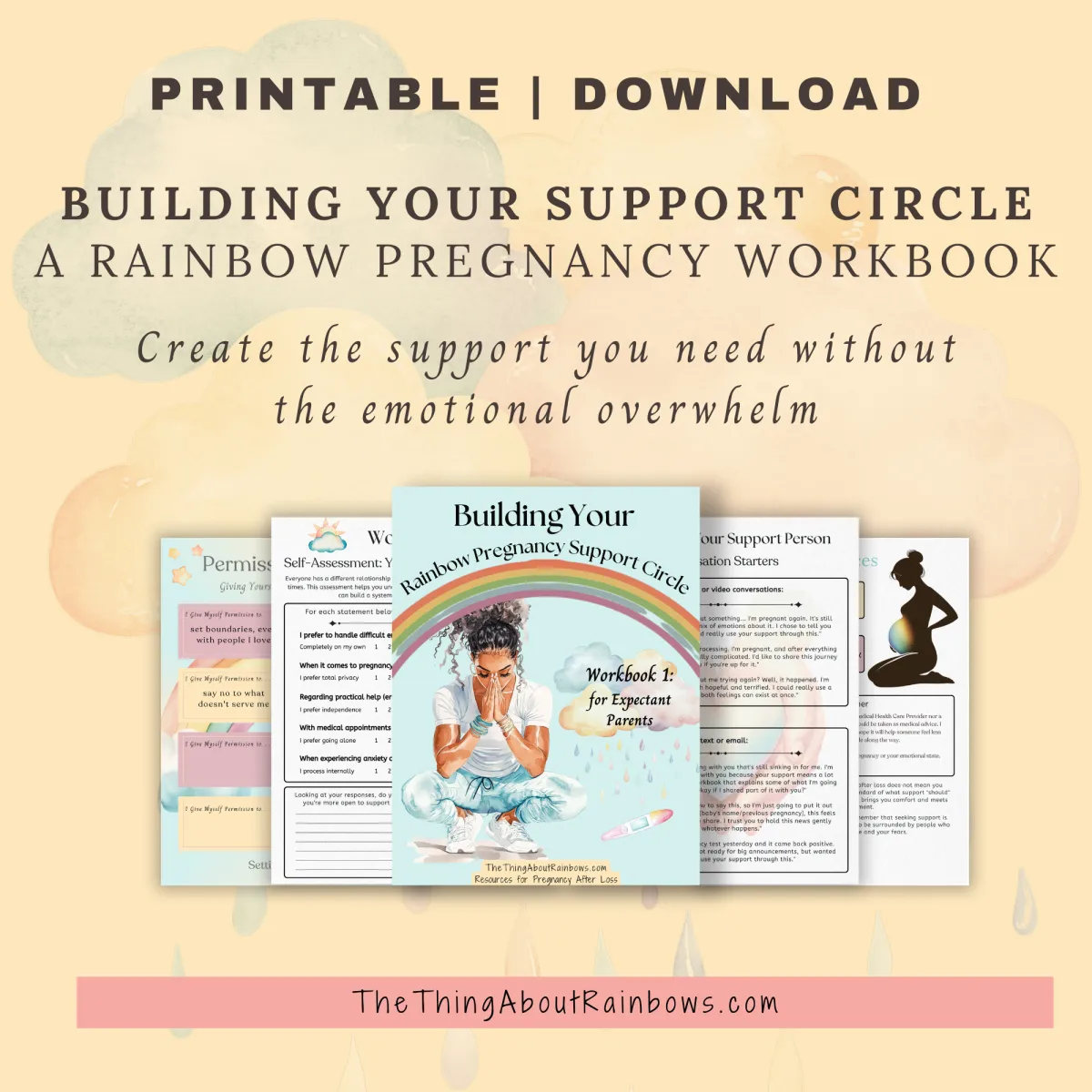
The common saying, "It takes a village to raise a child" gets thrown around like that village just appears one day.
Some of us are lucky, and that village does appear. But even the most caring, well-intentioned supporters in your life haven't been handed a guidebook on how to support pregnancy after loss.
The Building Your Support Circle Workbook was designed to help you identify your ideal support person and communicate your unique needs, creating a bridge of understanding between your experience and their desire to help.
Hope Intertwined With Fear, Joy Shadowed by Grief
In these moments, support matters—but explaining what you need when you're already processing so much can feel impossible.

Maybe you're trying to hold it all
together while wondering:
"Who can I actually trust with this news?"
"How do I explain what I need when I barely know myself?"
"What if people respond with toxic positivity or dismiss my fears?"
"How do I protect myself while still getting the support I need?"
The space between wanting support and fearing disappointment is lonely.
You deserve better than facing
this journey without the right people by your side.
Introducing:
A thoughtfully designed 30-page digital workbook guides you through creating the foundation of your support system—starting with just one trusted person who can walk alongside you.

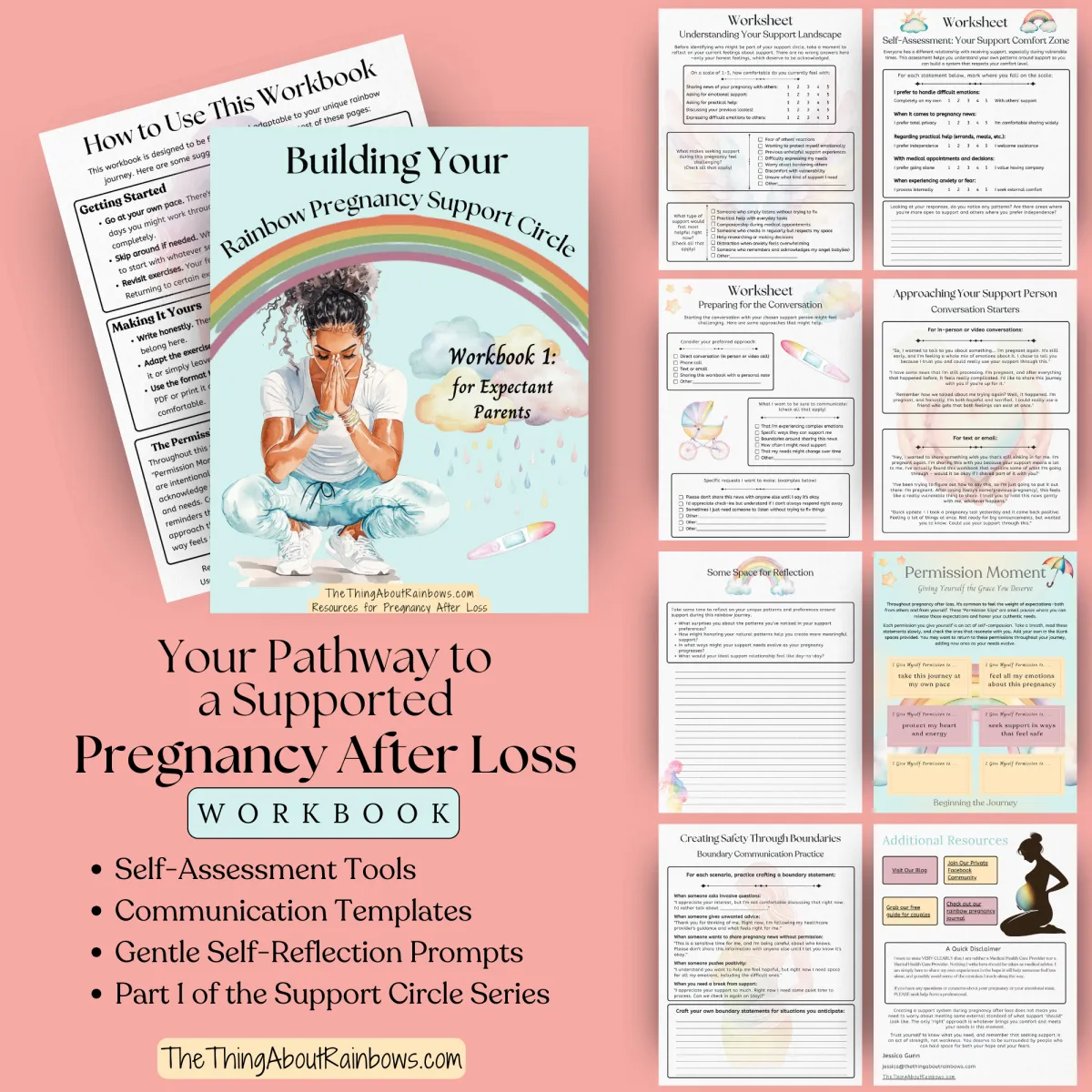
Inside Your Workbook:
Self-Assessment Tools
to help you understand your unique support needs without the emotional exhaustion of figuring it out alone.Support Person Selection Framework
to identify who will truly be helpful (not just well-meaning) during this vulnerable timeReady-to-Use Communication Templates
that express your needs clearly without requiring you to find the perfect wordsBoundary-Setting Worksheets
to create safety while allowing connectionPermission Slips
that validate your right to seek support on your own terms
This isn't just a collection of worksheets—it's a gentle companion through one of the most important and difficult steps of rainbow pregnancy: finding someone who can hold space for both your hope and your fear.
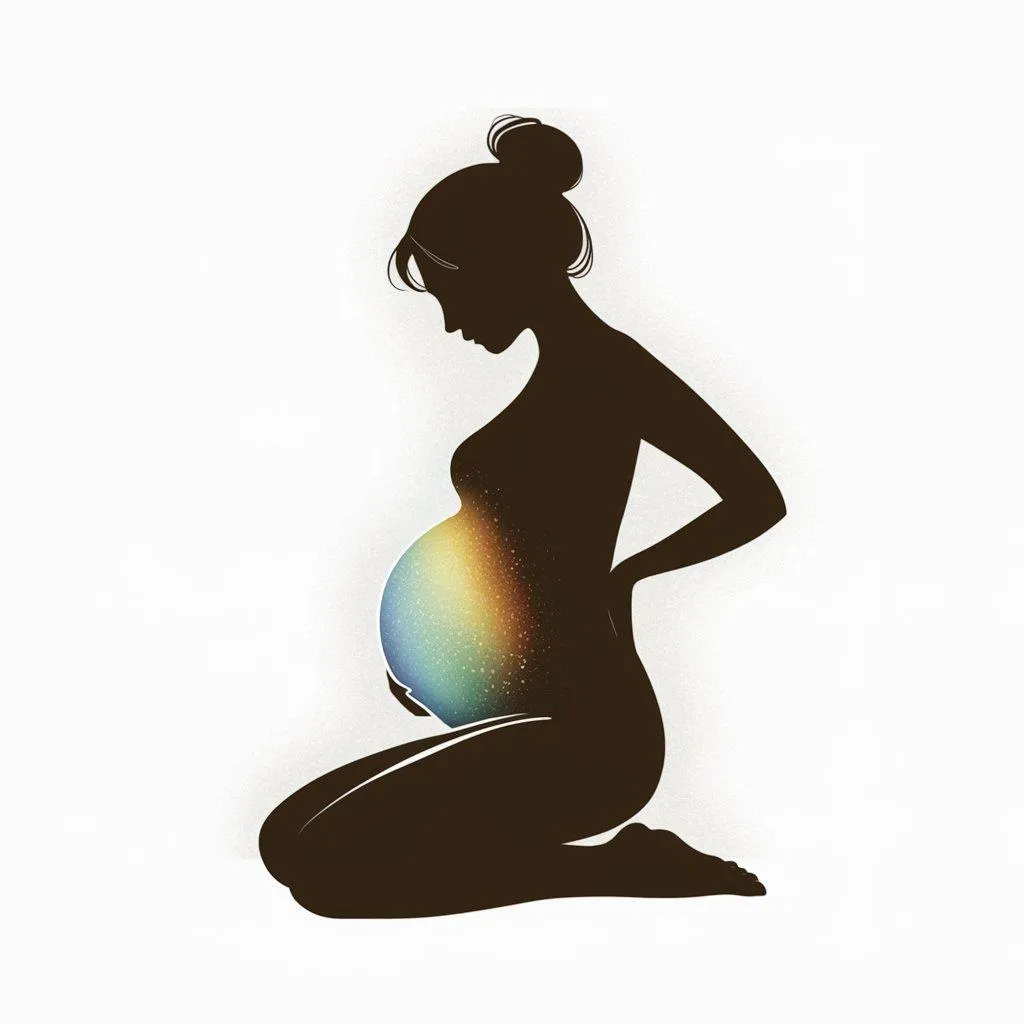
Frequently Asked Questions
Is this workbook right for where I am at in my pregnancy?
This workbook is designed to help at any stage of your rainbow pregnancy. If you're in the early weeks, it provides guidance on establishing initial support during this emotionally complex time. If you're further along, it helps refine your existing support or address gaps you may be experiencing. Many users find it particularly valuable during transitions (like entering a new trimester or approaching significant milestones) when support needs often shift. The principles and exercises work regardless of your timeline—there's no "too early" or "too late" to create intentional support.
What if I don't have anyone I feel comfortable sharing with?
This is actually quite common. The workbook includes a section on evaluating potential supporters you might not have considered, as well as guidance on professional support options and online communities that can provide connection while maintaining your privacy.
Do I need to complete the whole workbook at once?
Not at all. The workbook is designed to be used at your own pace. Some people complete certain sections immediately and return to others when they feel ready. There's no timeline for building support—only what feels right for you.
How is this different from other pregnancy resources?
Unlike general pregnancy books that might include a chapter on support, this workbook was created specifically for the unique emotional landscape of pregnancy after loss. It acknowledges trauma responses, protective distancing, and the complexity of emotions that standard resources often overlook.
If I already have your Two Pink Lines journal, would this be redundant?
They actually serve different but complementary purposes. While the journal focuses on your personal emotional processing and reflection, this workbook helps you navigate the interpersonal aspects of support. Many customers find that using both tools provides comprehensive support for both their internal journey and their relationships during this time.
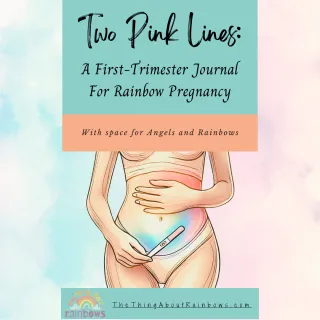
What formats are available for the workbooks, and can I print them?
You'll receive a PDF you can print if you prefer to write by hand or load into a PDF editor and fill out digitally. Once purchased, it's yours to keep and use throughout your pregnancy journey.
What if I change my mind about who I want to support me?
That's completely normal! The workbook includes guidance on adjusting your support circle as your needs change. You can revisit the exercises at any point to reassess who feels most supportive as your pregnancy progresses.
Will this workbook help my supporters know what to do?
This first workbook focuses on your needs and finding your initial support person. The second workbook in the series (coming soon) is specifically for supporters, giving them clear guidance on how to help effectively.
Hey, I'm Jess.
Founder of The Thing About Rainbows
When I lost my first pregnancy, it nearly broke me in half. And the subsequent infertility I experience after that loss also did a number on my mental health.
Surrounded as I was, by a support system of truly wonderful people, I still felt so deeply alone.
Pregnancy and infant loss are such incredibly isolating experiences. They are so difficult and painful to talk about. So we don't. And that leaves so many women feeling alone in their grief (shame, guilt, depression, anxiety, the list goes on).
Something else we don't talk about much is how hard it can be to make it through a following pregnancy. Or actually bring home an infant. The fear and possibility of loss during these times can only be truly understood by someone who has lived through them.
Now that I am on the other side of that fear and doubt and confusion, with my rainbow in my arms, my heart keeps calling out for all of the mothers out there who are going through the same things I did.
I created this support building workbook series because I remember the overwhelming challenge of trying to explain my needs while still in the midst of figuring out my own complex emotions.
Your story matters, your feelings matter, and your rainbow journey deserves the right kind of support—someone who can honor both your hope and your fear, in the way that works best for you.

You Don't Have to Navigate This Alone
Pregnancy after loss is challenging enough—finding the right support shouldn't be another burden. This workbook gives you the tools to create the support you need, on your terms.
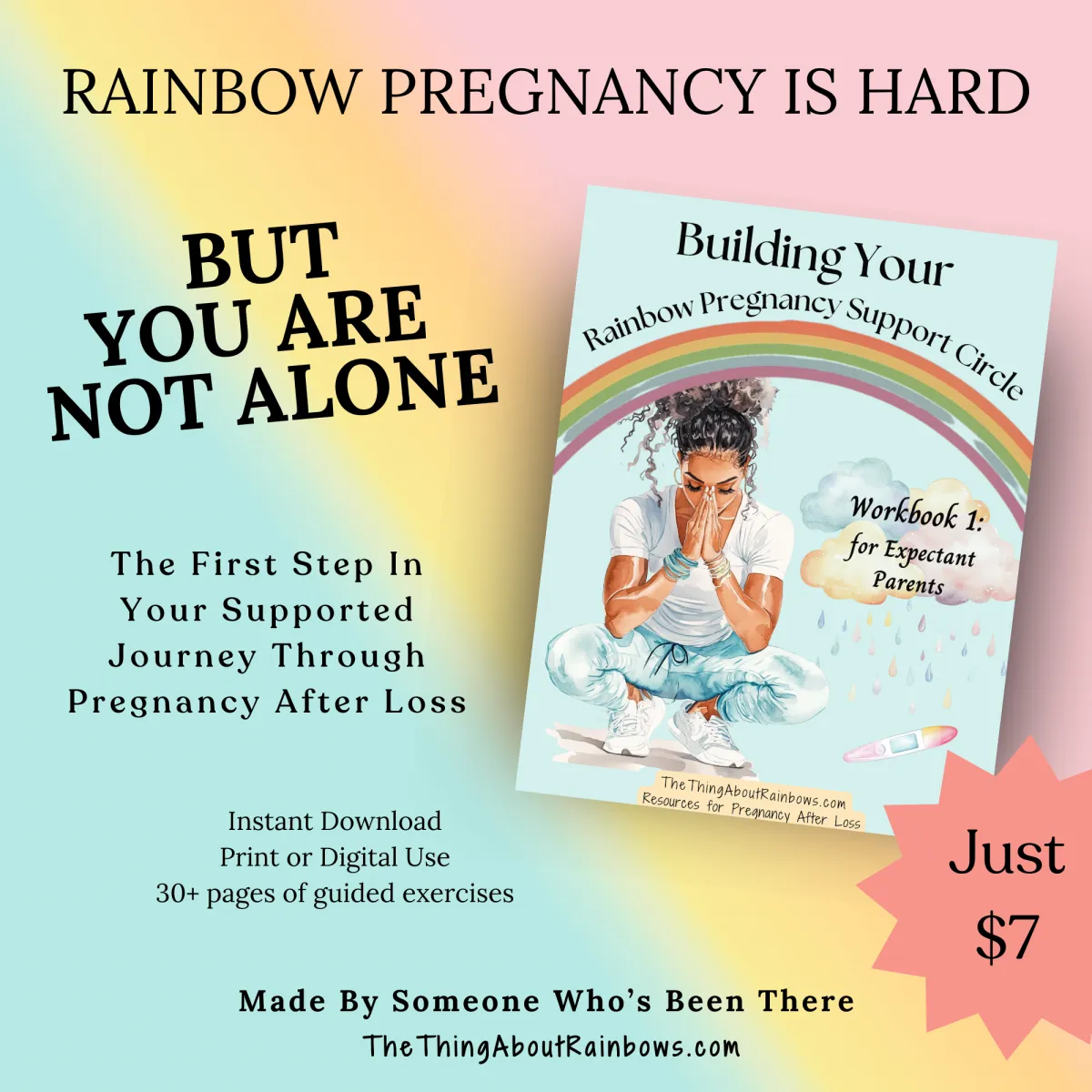
The Thing About Rainbows - © 2025 All Rights Reserved